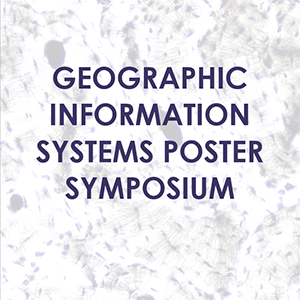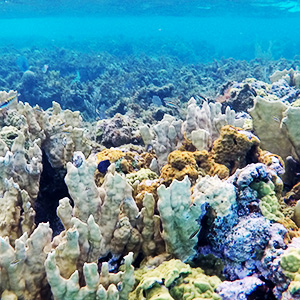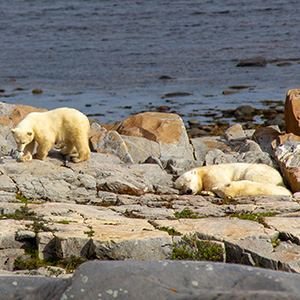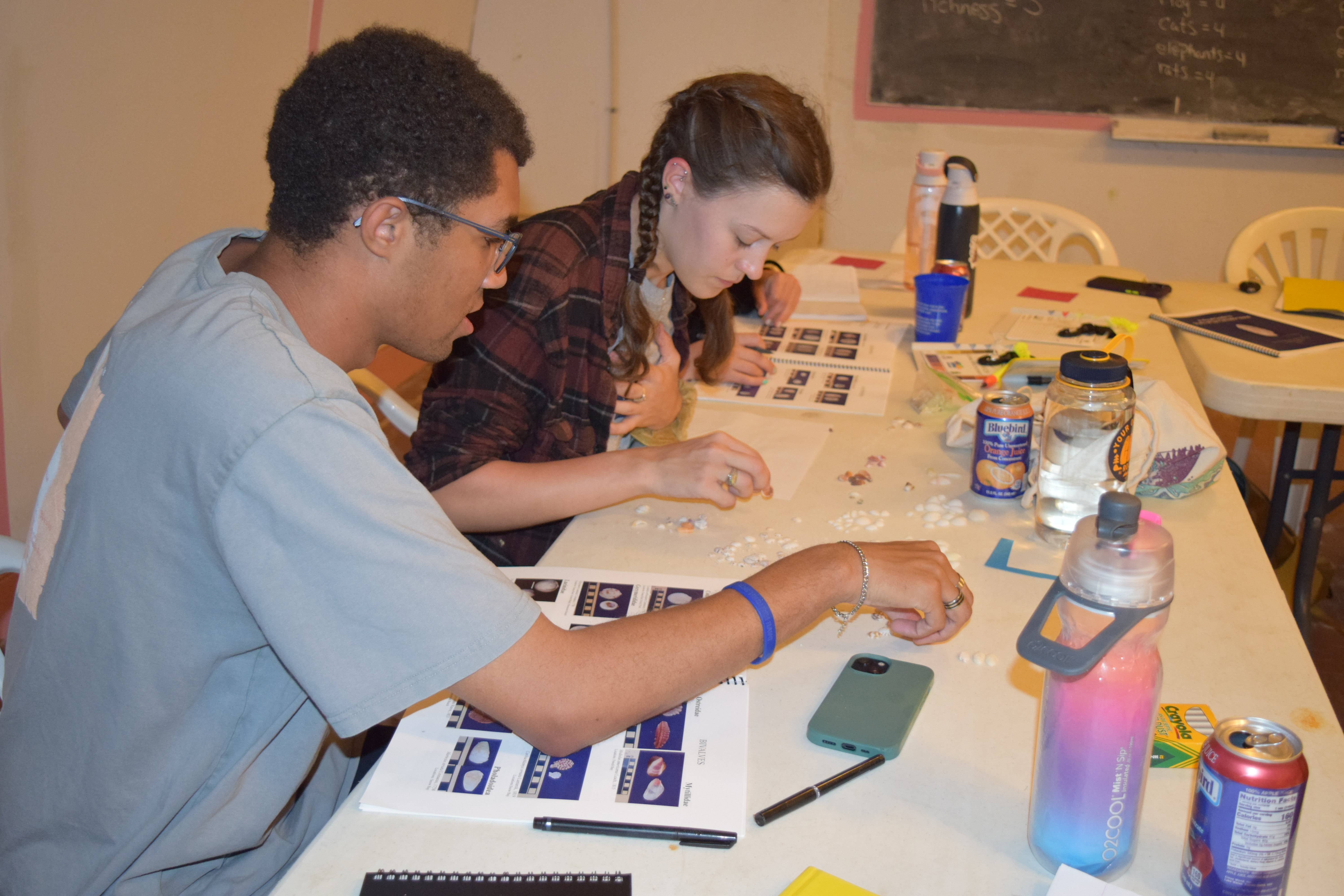Environmental Science and Environmental Studies students engage in a wide range of research activities in the classroom and beyond. Independent research in the Environmental Programs takes many forms, from semester research projects, to international course research trips, to independent summer research. Environmental majors have opportunities to work directly with faculty on a range of topics. Interested in doing some research? Talk to your advisor or reach out to one of our faculty members to find out what they are up to.

GIS Poster Conference
GIS Poster Conference
Introduction to GIS students capped off their semester with a poster conference.
Check it out
Geology of the Bahamas
Geology of the Bahamas
GEOL 345 students traveled to a research station in the Bahamas.
Check it out
Subarctic Field Studies
Subarctic Field Studies
Students traveled to Churchill, Manitoba in Canada to research subarctic ecozones.
Check it outStudents have a variety of options for incorporating research into their undergraduate experience at Winthrop.
Independent Study: Juniors and Seniors can receive course credit for research by registering for an Independent Study (ENVS 495). Independent Study projects are supervised by a faculty member and can be completed either Fall or Spring semester. Students receive a letter grade based on their work and the Independent Study appears on the transcript. Students must be an Environmental Studies or Environmental Science major and have completed ENVS 101 with a grade of a D- or higher. Interested students should reach out to the faculty member they wish to work under in the preceding semester. Faculty members may not be able to support all Independent Study requests.
Summer Research: Summer is a great time to get involved in research at Winthrop! Students can participate in the Summer Undergraduate Research Experience (SURE), which includes opportunities for networking and professional development. Students interested in summer research opportunities should reach out to potential faculty members early in Spring semester to learn about available opportunities.
Paid Research Assistants: There are occasionally opportunities for students to work as paid research assistants. These positions vary based on available funding and ongoing faculty research projects. Paid positions are advertised to majors in the department.
Volunteering: Students can also volunteer for research experience. This is a good opportunity for Freshmen and Sophomore majors who want to get a first taste of research, or those who only have a limited amount of time to commit to research. Students interested in volunteer experience should reach out to individual faculty to identify opportunities.

The Environmental Programs and Winthrop University provide a variety of resources to support student research. In addition to working with faculty on their projects, students can propose and develop their own research projects to be carried out with the support of a faculty mentor.
The Margaret E. Spencer Undergraduate Fellowship is available to rising junior or senior Environmental majors interested in conducting a substantive summer projects. Projects can include research, service, or an unpaid internship. The amount of funding varies by the length of the project, with a typical award of $3,000 for an 8-week project. Projects should be developed in consultation with a faculty member. Applications are typically due in the Spring.
The Office of Undergraduate Research offers support for students across the University.
Every year students share their work with the campus community at the Showcase of Undergraduate Research and Creative Endeavors (SOURCE).
The Summer Undergraduate Research Experience (SURE) provide support for students participating in summer research with faculty on campus.
The Environmental Programs faculty manage a variety of laboratory facilities used in undergraduate student research and teaching. The Geospatial Environmental Modeling (GEM) Lab is an advanced spatial analysis and remote sensing computational facility. The program is also home to two geology research labs.